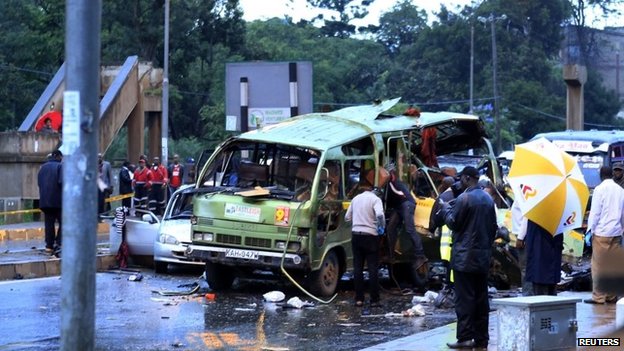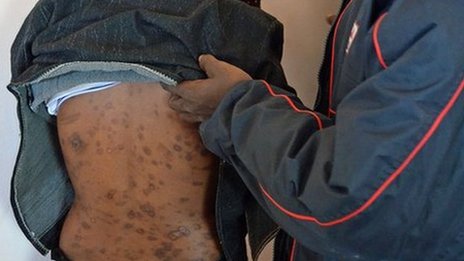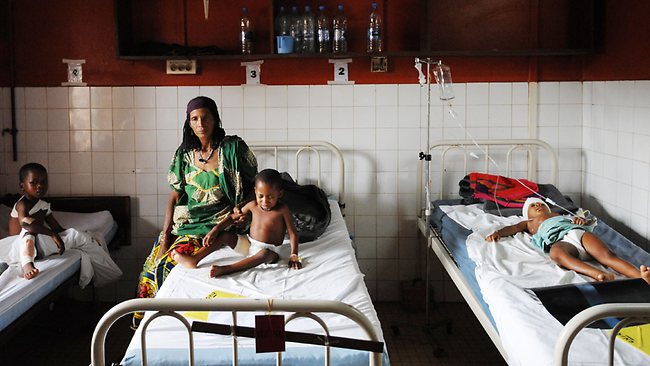By: Danielle L. Gwozdz
Impunity Watch News Reporter, Africa
NAIROBI, Kenya – At least six people have been killed and several injured by a grenade attack on a bus in the Kenyan capital, Nairobi, the interior ministry says.

The blast hit the 32-seater near the Eastleigh suburb, which is home to thousands of ethnic Somalis.
Nairobi police chief Benson Kibue said a suspect was being questioned over the attack on Saturday.
“We lost two of the victims in hospital where about 30 others are still admitted,” Kibue said. “We now have six people dead out of the incident.”
Police were trying to determine whether the powerful explosion was caused by a grenade or an impoverished explosive device and whether it was placed on the bus, carried by a passenger or flung from outside.
The blast hit several cars near the bus, killing at least one of the motorists, according to witnesses.
No group has claimed responsibility yet for the attacks.
One witness, Peterson Mwaura, said, “I was passing waiting for the traffic to clear so I can cross, then I hear a loud explosion and metals and other pieces from the vehicle were flying all over the place, and people shouting.”
“I ran back. People were crying for help, they were screaming, but the one lying here (at the scene) appeared to have died on impact.”
Kenya has been the scene of multiple terrorist attacks since the country sent its military to Somalia in 2011 to fight the extremist Somali militant group al-Shabab.
Al-Shabab claimed responsibility for the Westgate attack, saying it was in retribution for Kenya’s involvement in Somalia. The group, which is linked to al-Qaida, had threatened large-scale attacks for years, and it has said more will be carried out unless Kenya withdraws.
Kenya has been grappling with its large population of Somali refugees since the Westgate attack, with government officials announcing plans to speed up their return home. Nearly 500,000 Somali refugees live in Kenya, most of them in the sprawling Dadaab refugee settlement near the Somali border.
In the last several years, Somali refugee camps, particularly in Dadaab, have been hit by a spate of blasts by grenades and other improvised explosive devices.
“The attack is an unfortunate and cowardice incident which will not be tolerated,” the interior ministry said on its Twitter account, appealing for information from the public.
Police said the bus had been close to a girls’ school when it was hit.
Late on Friday, at least one person was killed and three others seriously wounded when twin explosions rocked the Kenyan town of Waji near the border with Somalia, police said, indicating it was likely the work of al-Shabab insurgents or their sympathizers.
Also near the border with Somalia, gunmen on Tuesday killed eight Kenyans, including five policemen, in an ambush.
Another policeman is missing following the attack.
For more information, please visit:
BBC News – Nairobi bus hit by deadly grenade attack – 14 December 2013
South China Morning Post – Death toll from Nairobi bus blast rises to six: police – 15 December 2013
The Christian Science Monitor – At least 3 killed in Kenya minibus attack – 15 December 2013
International Business Times – Six Dead in Nairobi Bus Attack – 15 December 2013
Time World – Explosion Inside Kenya Minibus Kills at Least 4 – 14 December 2013



